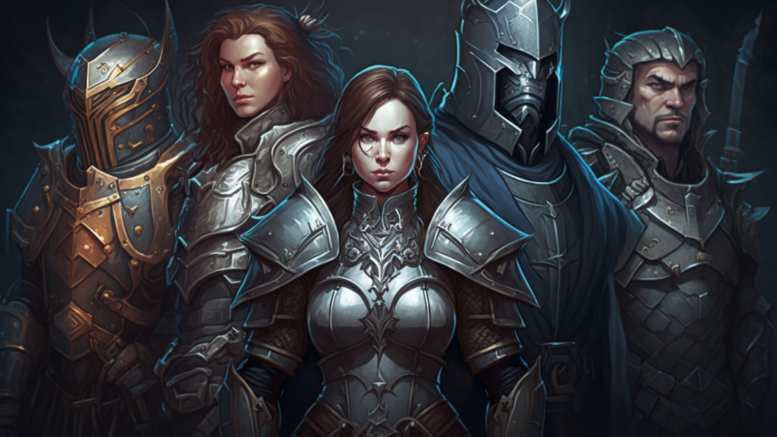When it comes to playing a paladin in Dungeons & Dragons 5e or Pathfinder 2e, there are both pros and cons to consider. Paladins are known for being strong, virtuous warriors who are dedicated to their cause and their deity. However, they also come with certain limitations and challenges that can make playing them more complex.
First, let’s look at the pros of playing a paladin in D&D 5e. Paladins are incredibly versatile characters that can be built to fulfill multiple roles in a party. They are proficient in both melee combat and spellcasting, which allows them to adapt to a variety of situations. Additionally, they have access to unique abilities such as Lay on Hands, which allows them to heal allies, and Aura of Protection, which provides a bonus to saving throws for allies within range.
In Pathfinder 2e, paladins have a similar level of versatility, with access to spells and the ability to use divine powers to bolster their allies. They also have a unique code of conduct known as the Paladin’s Oath, which allows them to gain access to even more powerful abilities as they progress.
Another advantage of playing a paladin is the roleplaying opportunities that come with the class. Paladins are often seen as shining examples of righteousness and can be a great source of inspiration for the rest of the party. They also provide an opportunity for players to explore the concept of faith and devotion, which can add depth to their character’s story.
However, there are also cons to playing a paladin in both D&D 5e and Pathfinder 2e. Paladins are typically bound by a strict code of conduct that can restrict their actions and decisions. In D&D 5e, this code is known as the Oath, while in Pathfinder 2e it is called the Champion’s Code. This can make playing a paladin more challenging, as the character must always act in accordance with their beliefs and values.
In addition, paladins in both games have certain weaknesses. They are often vulnerable to spells and abilities that target their alignment or their connection to their deity. This can make them more difficult to play in certain situations, as they may be limited in their ability to act without risking their divine powers.
Another limitation of paladins is their dependence on their deity or code. If a paladin violates their oath or fails to uphold their beliefs, they may lose access to their divine powers. This can be a major setback for the character and can cause tension within the party if the paladin’s actions conflict with the group’s goals.
In terms of contrast between the two games, Pathfinder 2e paladins have a more defined code of conduct than D&D 5e paladins, which can make them feel more restrictive. However, they also have access to more unique abilities and powers that can make them feel more distinct from other classes. D&D 5e paladins, on the other hand, are more flexible in terms of their oath and can be tailored to fit a wider variety of playstyles.
Overall, playing a paladin in D&D 5e or Pathfinder 2e can be a rewarding and challenging experience. While they offer a great deal of versatility and roleplaying potential, they also come with certain limitations that can make them more complex to play. Understanding the pros and cons of the class can help players make an informed decision and create a character that is both compelling and effective.

Be the first to comment on "From Divine Powers to Strict Codes: The Nuances of Playing a Paladin in D&D 5e and Pathfinder 2e"